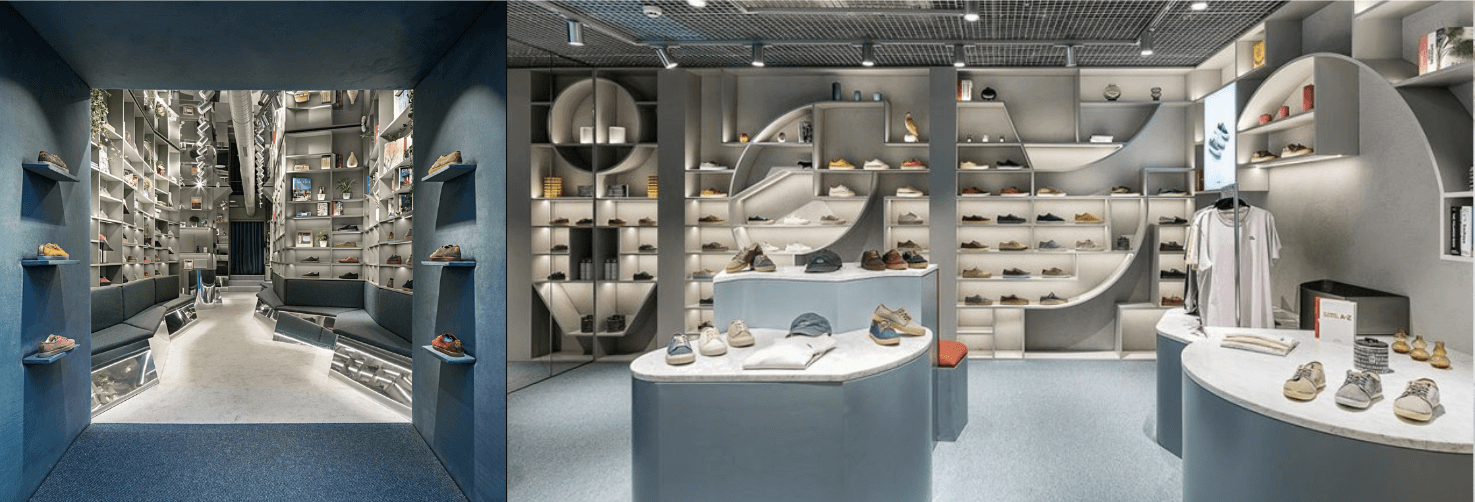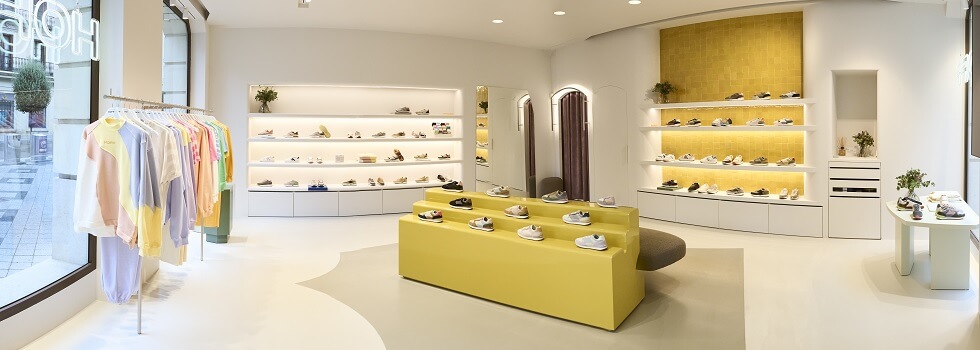In this exclusive interview, we sit down with Natacha Villas Boas, Group Retail Director at VIA Outlets, to discuss the current and future trends in the retail industry. With extensive experience in the field, Natacha offers a deep insight into the challenges and opportunities facing retail in an increasingly digitalized world. From the enduring relevance of physical stores to the pros and cons of online shopping, we explore how technology is reshaping customer experiences and what it takes for a store to thrive in today’s competitive market. Natacha also shares her views on the importance of customer loyalty and how artificial intelligence could be the key to the future of retail. Join us in this conversation to uncover the strategies that are defining the future of commerce!
Interview Shopping Centers – Artificial intelligence, the key…
Natacha, do you think offline will disappear?
It’s very unlikely that offline retail will disappear. We are seeing an adaptation to a hybrid model focused on a better
customer experience, and a highly curated environment, adding more categories such as food, art, nature, or wellness, improving better services, adding technology, and developing a sense of community.
Brands are realizing that consumers are more demanding, and they are looking for experience, authenticity, creativity, and relatability leading to a shift in the way physical stores are presenting their products and interacting with their clients to create more emotional connections.
The Omni channel is seen as a complementary experience with the Offline, often driving clients to the store, for pick up & collect, return, cross-sell, or upsell boosting performance, and at the same time is a smart way of acquiring information and learning from customers desires and needs.
However, we are assisting to a global slowdown in new store openings, due to the unsettled global economy, a new hit peak in Real Stare with high rents, or mature markets where brands are already present heavily.
We are seeing an adaptation to a hybrid model focused on a better customer experience
What are its defects and virtues in front of online retail?
For consumers, shopping online is convenient, you can shop anywhere at any time, just with a click. You have a wider selection, price-competitive and it is efficient. On the contrary, there is a lack of experience, you cannot verify the quality of the product, grant sizing and fit with accuracy, driving high percentages of returns and exchanges, often requiring trouble in shipping the items back.
For Brands, it´s also always open, is great to reach scale, increase
traffic, and boost sales with low operating costs, such as rent or staff. Provides also customer data, preferences, behavior, and history for targeted marketing and campaign communications. The ability to integrate with social media creates a higher brand awareness and presence. However, the weight on returns can be costly for retailers, taking into account sustainability practices packaging and courier costs. Also, low interaction with the customers is considered a disadvantage for loyalty and simultaneously is necessary that online platforms can ensure confidence, trust, and cyber security.
What is the biggest problem or weakness that retail has to face?
Recruitment is the biggest challenge for Retail. Attracting and retaining talent and fostering diversity is becoming a huge topic for all Retailers. The cost of living crisis has created high pressure, a low reward, and misshaped career expectations mixed with the fact that the Retail career has not been adequately adjusted or supported to face these natural changes.
A Revamp out of the box is urgent, from Retail companies to HR recruitment agencies to the moment of a job description requirement to the hiring process to the onboarding practices, ongoing training, flexible working, remuneration, incentives, benefits, and a clear promotional journey.
Retailers must focus on the mission, have a long-term plan, choose a key location wisely, and have the ability to create emotions and desires
In the current context, what role does technology play in retail?
In the long term, the acceleration of AI in the fashion industry can be transformative and valuable for product design, product development, supply chain and logistics, marketing, sales and customer experience, store operations, store layout design, etc. Of course, caution is understandable due to the direct impacts on jobs and creativity as a key for brand differentiation.
Platforms like ChatGPT, Co-Pilot, Google AI, Runway, Jasper, or Lalaland.ai, are already tools used by Brands in their development process and more will come, within bounds I hope we all benefit from it.
What does it take for a store to work? Is there a magic recipe?
The magic recipe will be to have a clear vision about ” the why ” we are opening a store, to focus on the mission, to have a long-term plan, to choose a key location wisely, and to have the ability to create emotions and desires. You must also provide exceptional customer service and build strong relationships with the customers showing care, and love, and being a good listener about customers’ needs. At once and regardless of the store size, category, or brand, retail operations management is key for a successful store. Inventory efficiency, marketing and communication, maintenance, measuring and analyzing performance, and customer data are the main activities to keep you on track daily and a positive P&L.
The most successful loyalty programs are the ones that foster a sense of community, where you have a feeling of belonging
How is customer loyalty achieved? How do you engage your customers?
I believe that the most successful loyalty programs are the ones that foster a sense of community, where you have a feeling of belonging and you also can share experiences.
Several services, customized rewards, exclusive offers or collaborations and incentives are strategies used to engage and have strong relationships with customers.
In the future and with the integration of
AI technology, loyalty programs will jump into hyper-personalization and will help to maintain consumer loyalty for life.
How do you see the future of retail?
The Fashion industry is constantly facing challenges on the horizon due to several factors: the global economy, climate urgency, new sustainability rules., AI technology, integration, and shifts in consumer behavior are some examples but even so it has shown resilience in the past years despite the pandemic period. The capacity for adaptability and flexibility plus creativity in developing new business models with revolutionary technology will always create new opportunities for Retail.




 People Counting
People Counting Conversion Analytics
Conversion Analytics Customer Behavior
Customer Behavior Occupancy Management
Occupancy Management Queue Analytics
Queue Analytics Restroom Management
Restroom Management Guest Wifi Marketing
Guest Wifi Marketing Corporate WiFi Access
Corporate WiFi Access Retail
Retail Shopping malls
Shopping malls Hospitality
Hospitality Public Venues
Public Venues